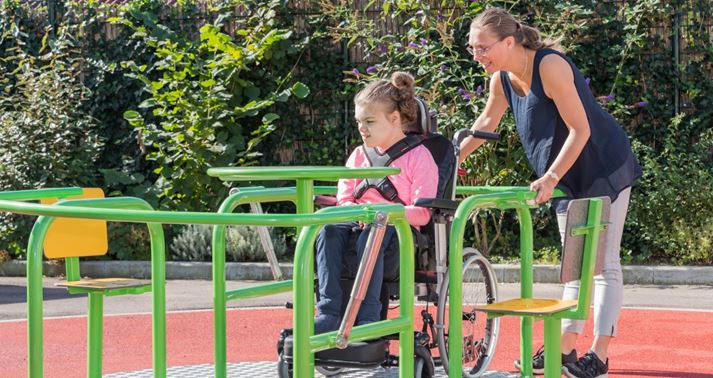How Individualised Support Services Can Help Relieve Carer Stress
22 June, 2022

Caring for a loved one with disability is a deeply personal and rewarding role. But for many primary carers, it’s also one that comes with considerable emotional, physical and mental strain. The day-to-day responsibilities often go unseen and unacknowledged leading to what many describe as “the hidden stress” of caregiving.
While family carers play a vital role in the lives of people with disability, it’s equally important that they receive the support they need to continue in their caring role in a sustainable and healthy way. That’s where individualised support services come in.
In this article, we explore how accessing trusted disability support can ease the pressure, restore balance and offer much-needed peace of mind for carers across Australia.
The Hidden Stress Behind Informal Care
Family carers are often juggling multiple responsibilities, raising children, managing households, maintaining careers, all while providing full-time or part-time care for a loved one with disability. This can lead to high levels of stress, fatigue and burnout, especially when there’s limited time for rest or self-care.
Carers often put their own needs last, and over time, this can affect their health and wellbeing. Research consistently shows that carers are more likely to experience anxiety, depression, sleep disruption and chronic health conditions. The emotional weight of the role, combined with the physical demands of care, can be overwhelming, especially without access to professional support.
And when a carer becomes ill, injured, or simply reaches a point of exhaustion, they may not have a backup plan.
Why Individualised Support Services Matter
Individualised support services are designed around the unique needs, goals and circumstances of the person with disability, as well as their support network. These services not only enhance the quality of life for the person receiving care, they also offer vital relief to carers.
Whether it’s regular in-home support, community access, personal care, or short-term respite, engaging with a trusted provider can help:
- Reduce the pressure of daily care responsibilities
- Support a healthy balance between caregiving and life outside of it
- Provide continuity of care during emergencies or periods of illness
- Give carers peace of mind knowing their loved one is in capable, compassionate hands
For carers, it’s about knowing you don’t have to carry the entire load on your own.
Short-Term Respite: A Lifeline for Carers
There are times when even the most dedicated carer needs to step away, whether due to illness, injury, or just to take a well-earned break. Short-term respite can be the lifeline that makes this possible.
Respite care provides temporary support for people with disability when their usual carers are unavailable or require time off. It can take place in the home, at a community-based facility, or through supported stays away from home, depending on the needs and preferences of the individual and their family.
For many carers, respite is not just about taking time out, it’s about recharging, recovering, and returning to their role with renewed energy and focus.
Choosing a Trusted Support Provider
When you’re placing your loved one in someone else’s care, trust matters. That’s why it’s essential to choose a provider with a proven track record in delivering professional, personalised, and compassionate disability support services, tailored to meet the specific needs of each individual and their family.
At McArthur Community Care, we take a holistic and person-centred approach to support. Our team is committed to empowering people with disability to live as independently and confidently as possible while also offering essential relief to their carers. Our services include:
- Daily Personal Activities: Support with everyday routines such as getting out of bed, preparing meals, dressing, and attending appointments. Our workers provide respectful, dignified assistance that promotes choice and independence.
- Personal Care: Tailored support for hygiene and self-care tasks like showering, toileting, grooming, mobility assistance, and medication reminders. Our focus is on preserving the dignity of every individual while helping them maintain their health and wellbeing.
- Life Skills Development: We work alongside participants to build skills for greater independence whether it’s learning how to cook, manage money, travel on public transport, or communicate effectively. Our programs are designed to boost confidence and support long-term goals.
Each support plan is developed in partnership with the person with disability, their carers and families, ensuring that services are responsive, flexible, and aligned with NDIS funding.
Whether it’s ongoing in-home support, help to access the community, or short-term respite care, McArthur Community Care is committed to delivering high-quality, reliable services that make a real difference.
You're Not Alone - McArthur Community Care is Here for You
Being a carer is a role filled with love but it shouldn’t come at the cost of your own health and wellbeing. With the right supports in place, you can continue to care with confidence, knowing that you’re backed by a trusted team who genuinely understands your journey.
If you’re a primary carer and need support whether due to illness, injury or simply needing time to rest, McArthur Community Care is here for you. Our short-term respite and individualised services can help ensure continuity of care when you need it most.
Contact us today to discuss how we can support you and your family with compassionate, tailored disability services designed to relieve the pressure and restore balance.
Share this Article
Related Articles
Changing NDIS Providers: How to Navigate Service Closures with Confidence
If your NDIS provider is closing services, your support does not have to stop. Discover your rights, how to switch providers with confidence, and how McArthur Community Care can ensure a smooth transition with reliable, long term support.
Learn MoreCreating a Compassionate Future for Disability Support
Empowering individuals with disability starts with equipping support workers with the right skills. McArthur Community Care advocates for quality training, respect, and inclusion to create a compassionate future for disability support.
Learn MoreBuilding Relationships: A Cornerstone of Exceptional Disability Care
Alice’s story highlights the power of person-centred disability care. Shared by Stewart Pope of McArthur Health Support, it underscores the need for tailored support over generic models, advocating for policies that prioritise relationships, safety, and dignity.
Learn MoreEssential Credentials and Qualifications You Need to Work as a Disability Support Worker
Disability support workers play a vital role in delivering safe, person-centred care under the NDIS. This guide outlines the essential credentials, checks, and qualifications required to work in the sector or engage support workers with confidence.
Learn More



